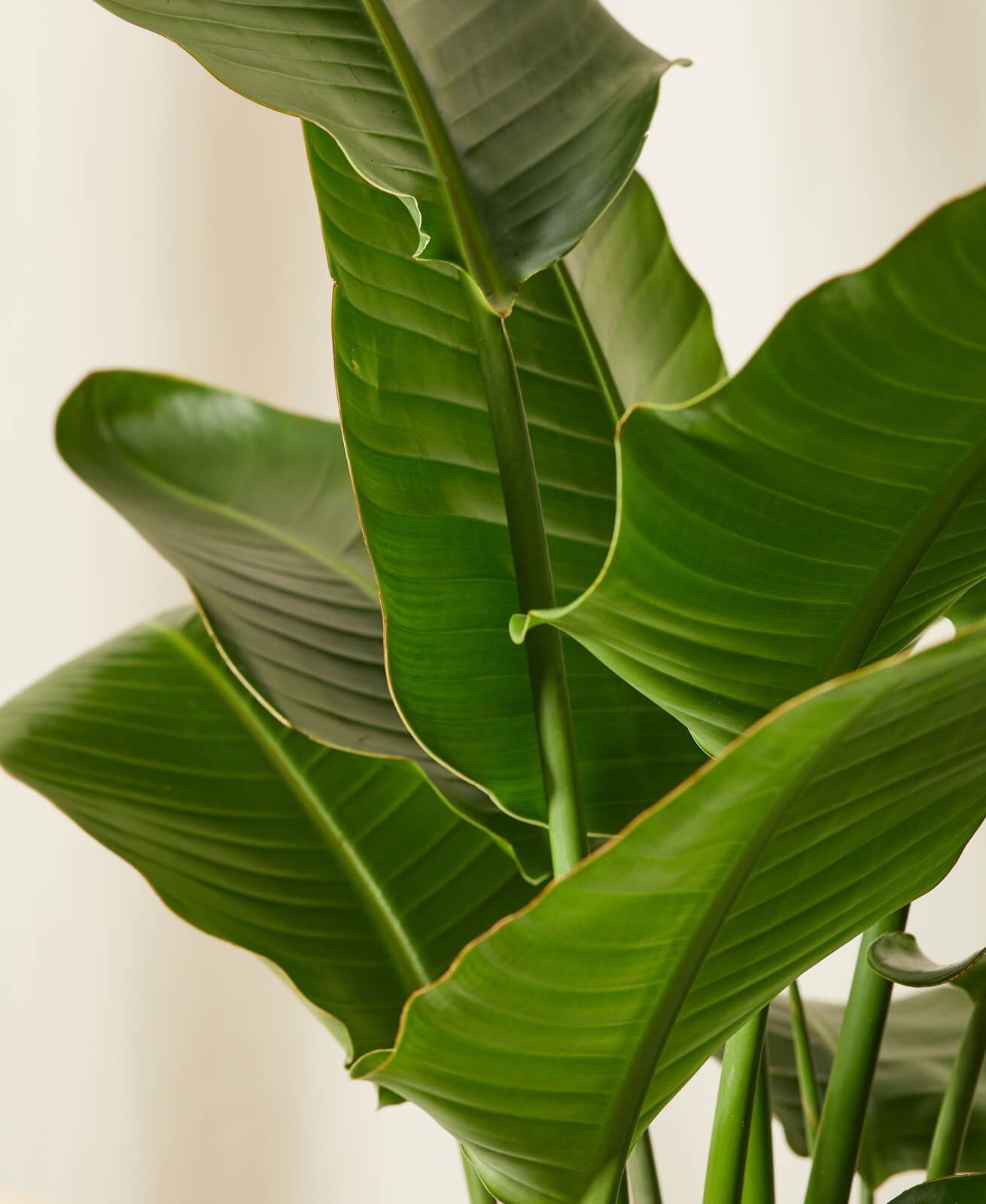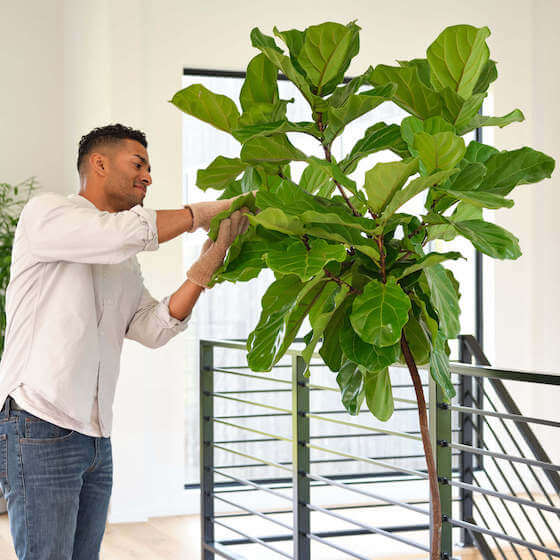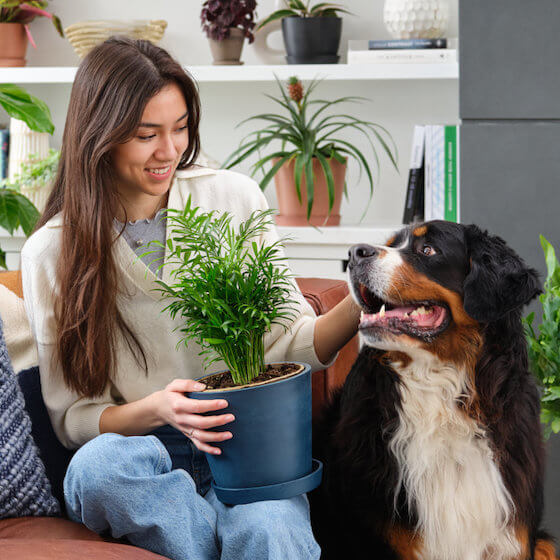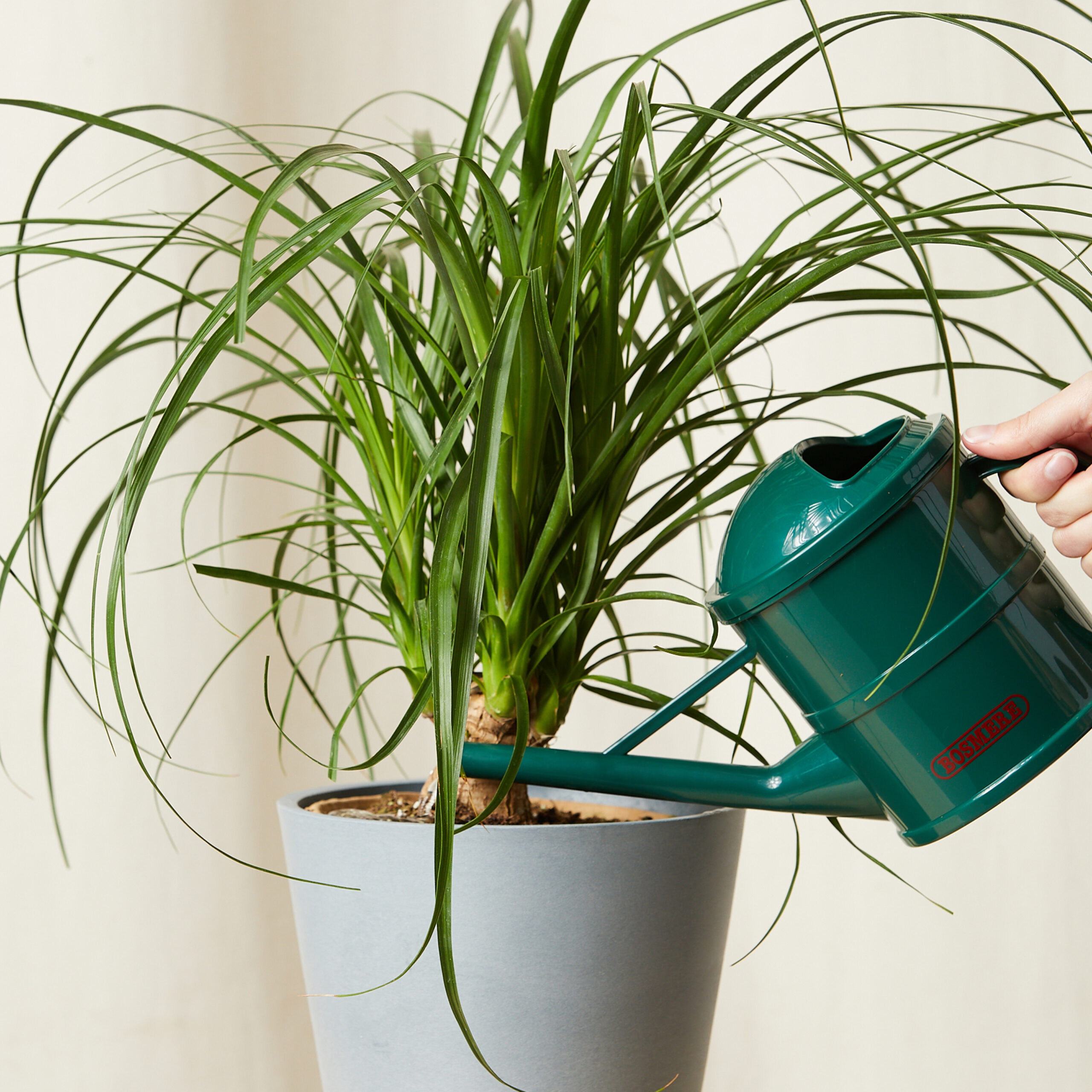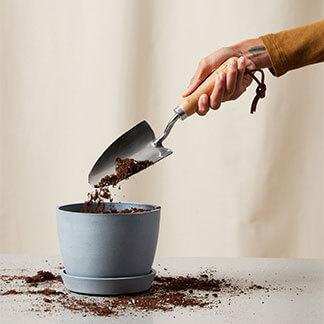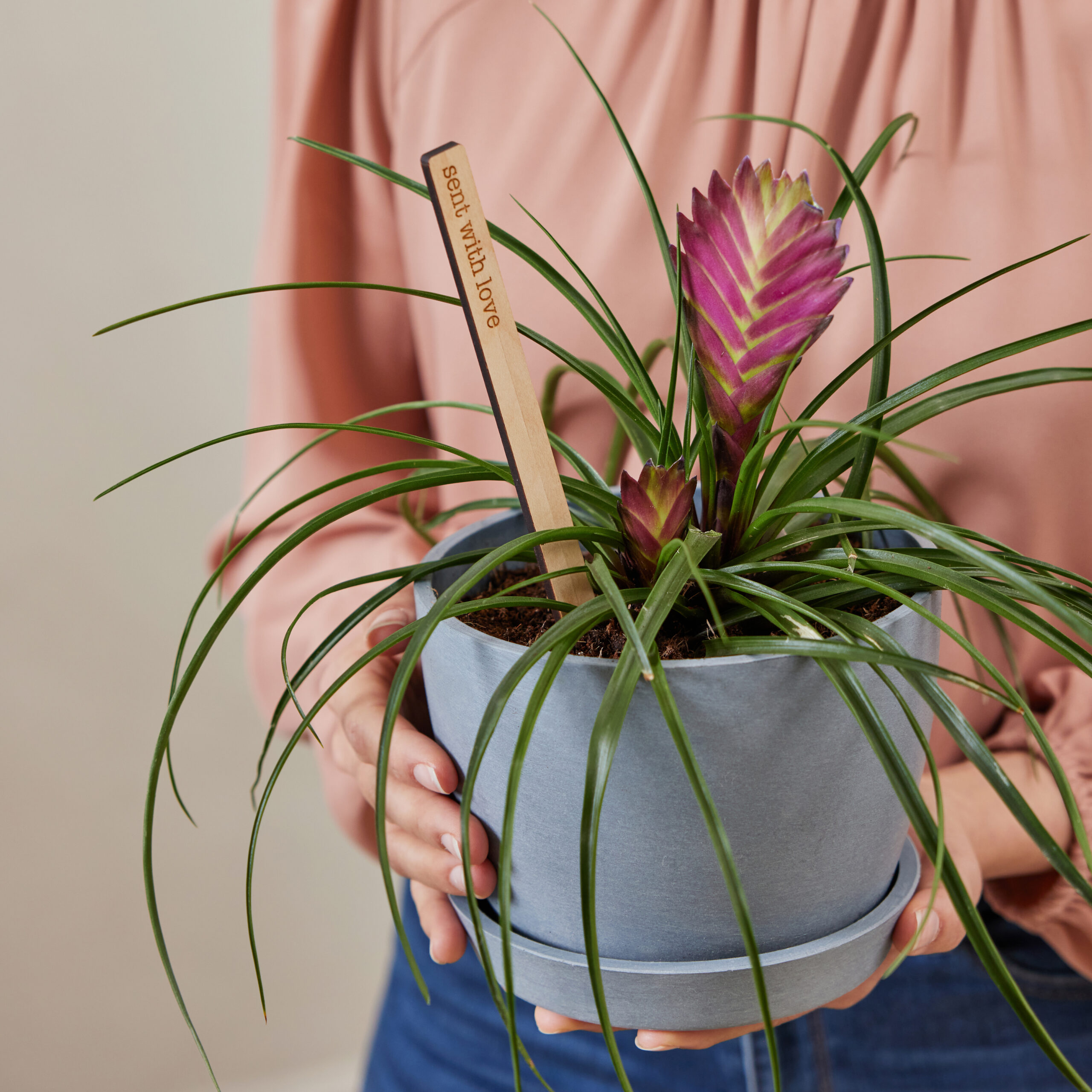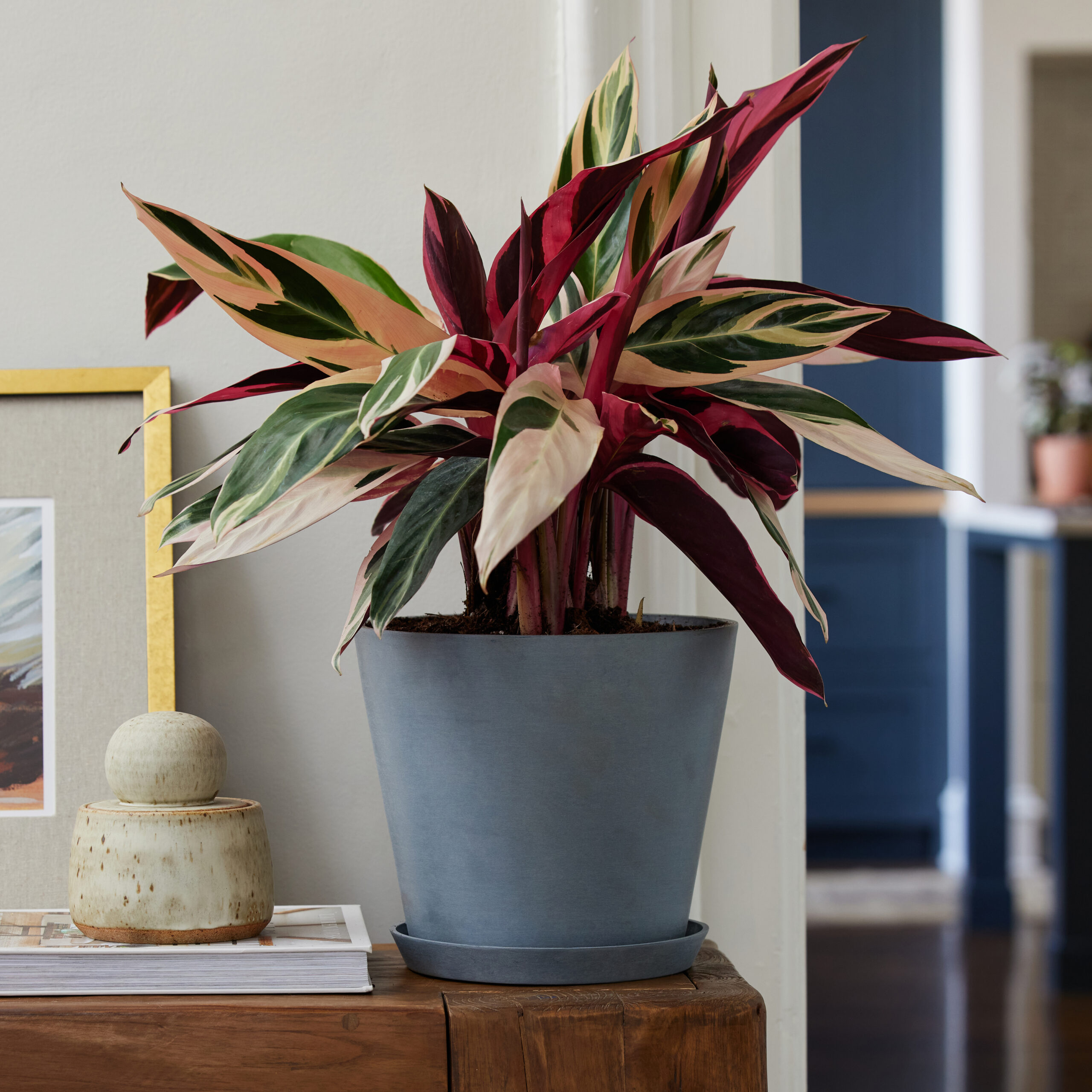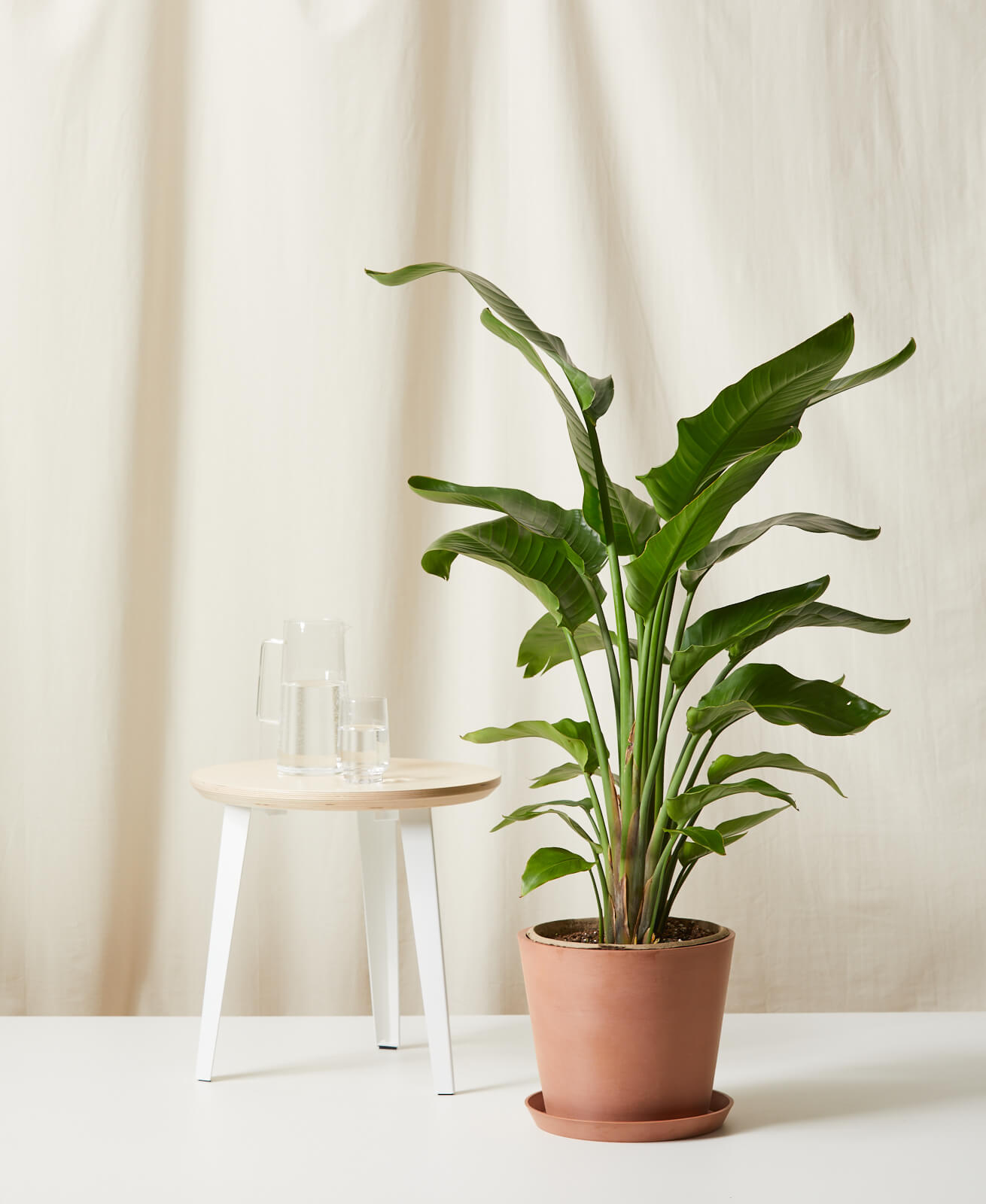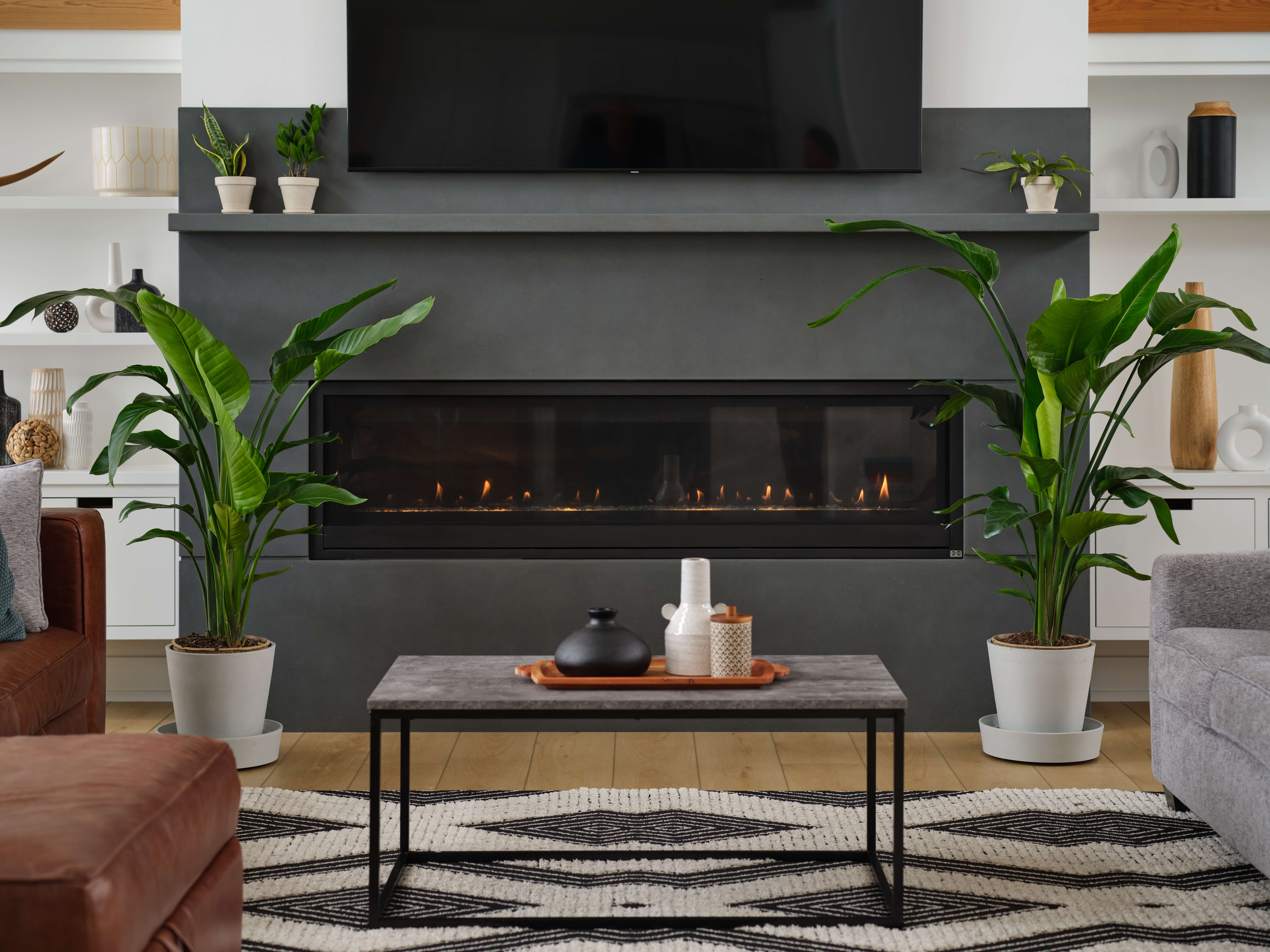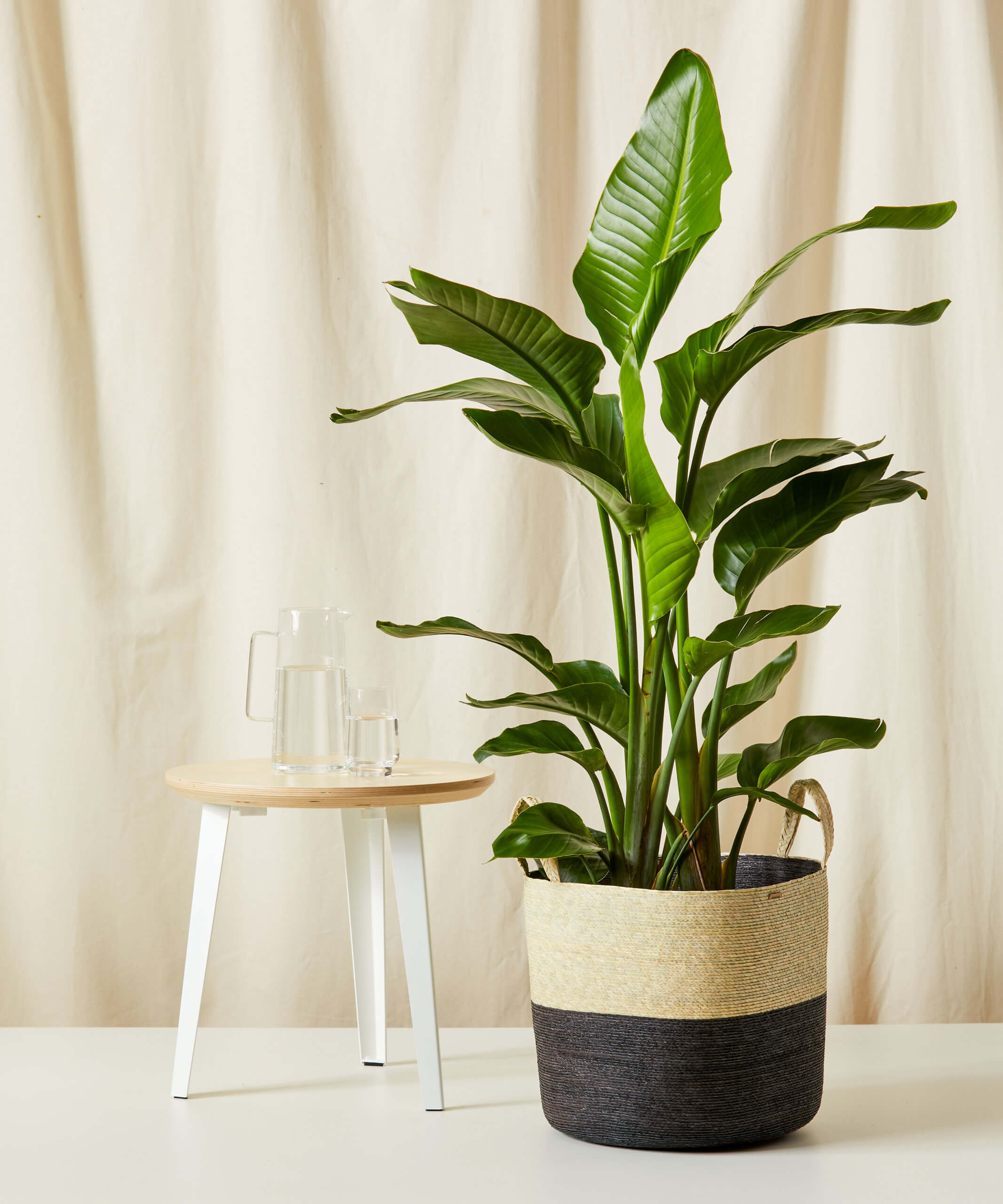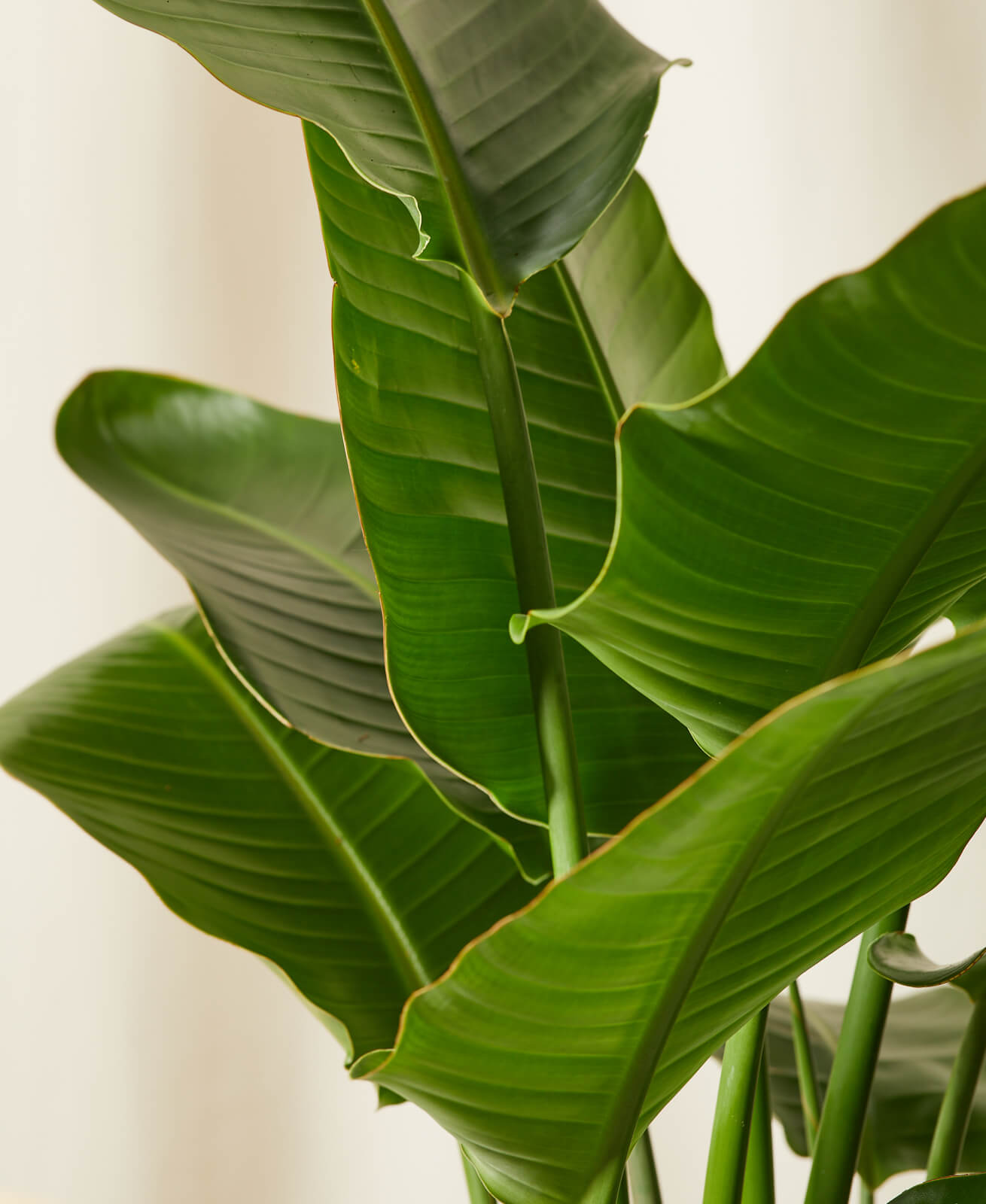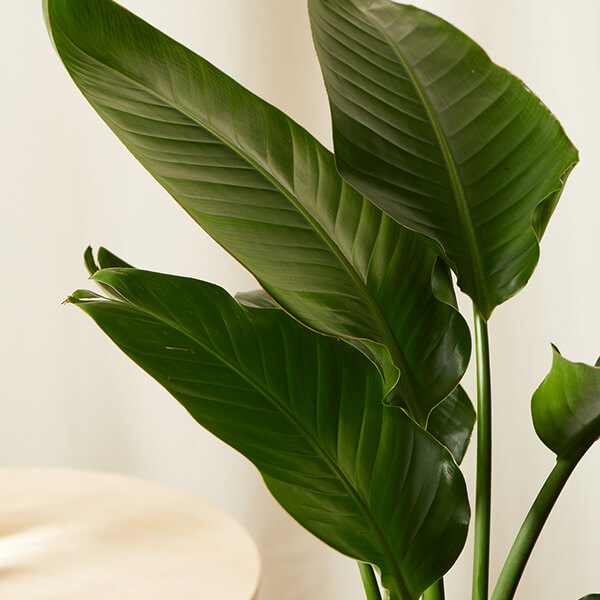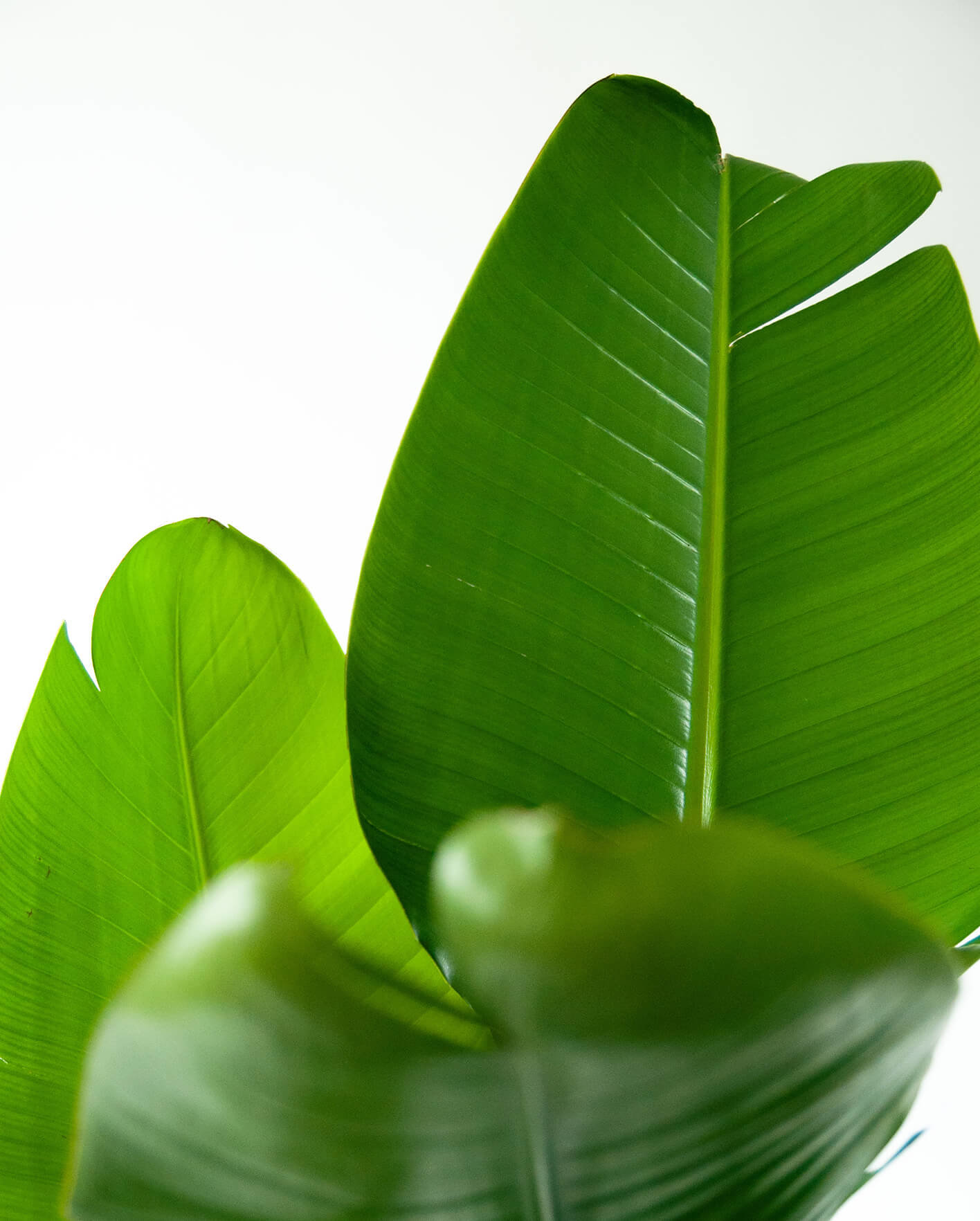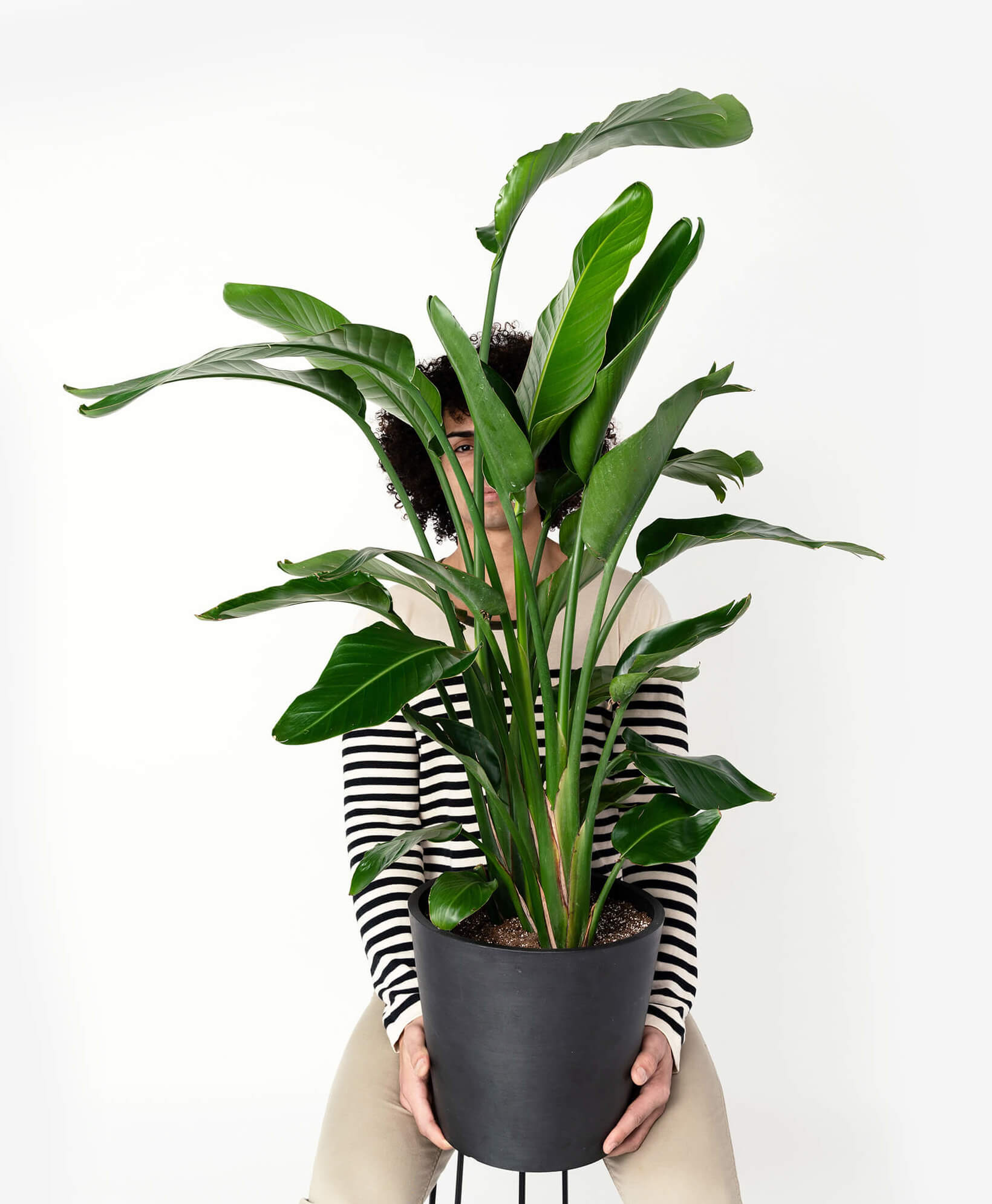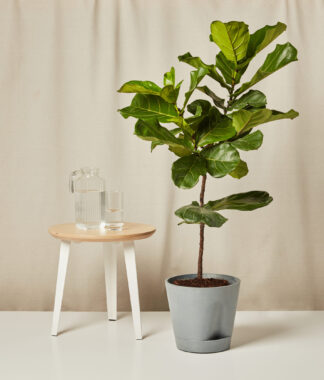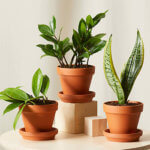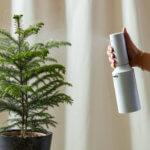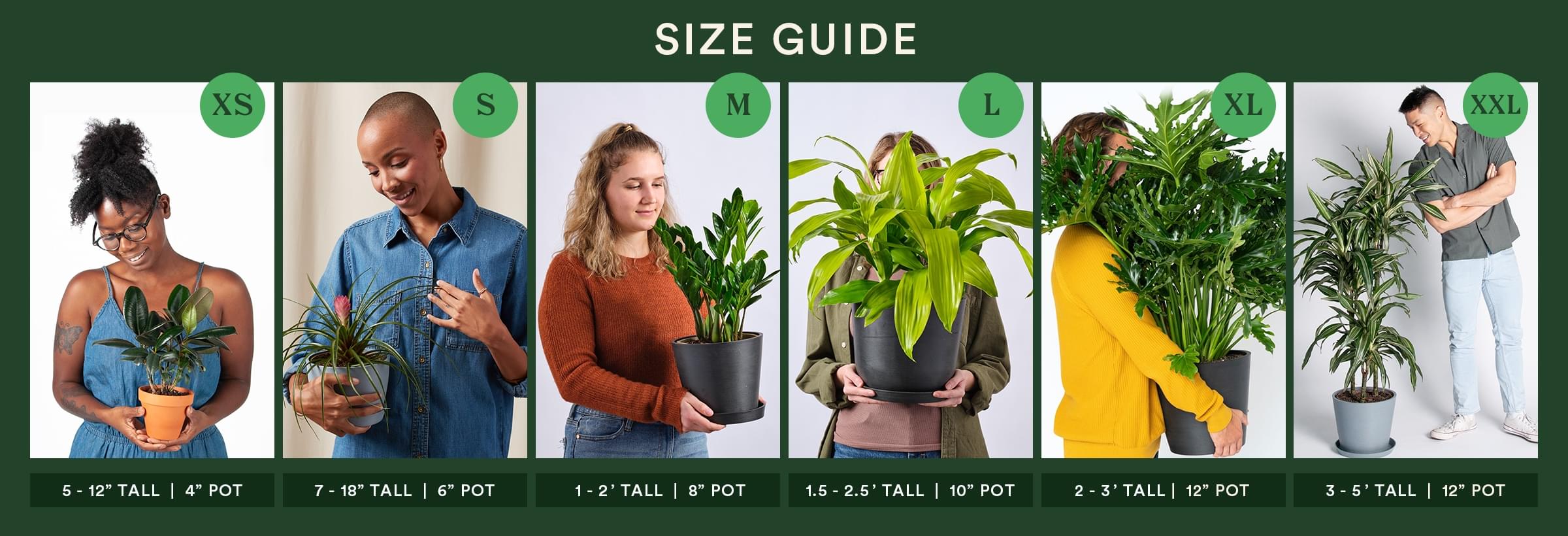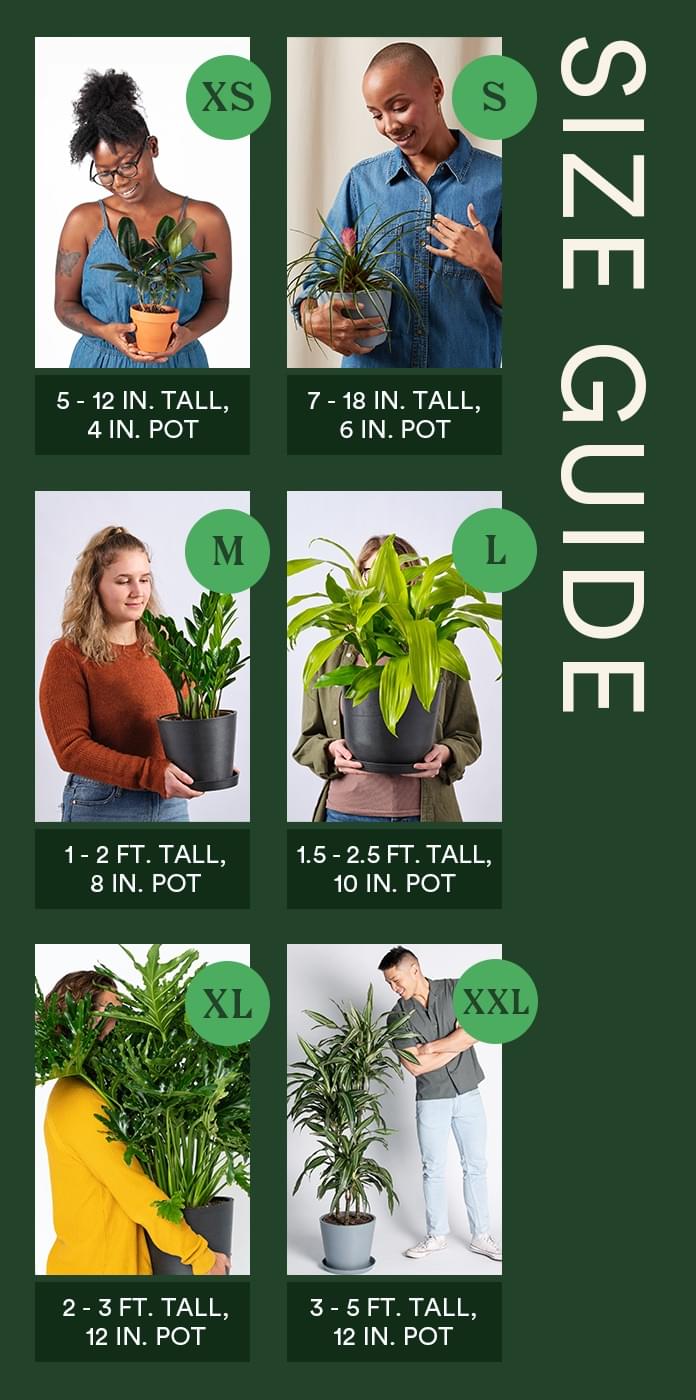Bird of Paradise
Impressive and tropical with large, glossy leaves that naturally split over time.
Details & Care
Size
XXL—39"-53" tall (including recycled plastic Ecopot) Size Guide
Difficulty
No-fuss—Easy Care
Light
Bright Indirect to Direct
Pet Friendly
No—Toxic and not pet-friendly
Air Cleaner
Yes—Releases oxygen and absorbs pollutants
What's Included
- Healthy plant pre-potted with premium soil
- Plant size: 39″-53″ tall (including pot)
- Ecopots pot and saucer
- Round Pot: 11.8″ diameter, 10.25″ tall
- Round Saucer: 10.5″ diameter
- All the tips and tricks for expert-level care
Free Shipping
Get free standard shipping when you spend $125 or more. Learn More
Guarantee
If your plant dies within 30 days, we’ll replace it for free. Learn More
Description
The Bird of Paradise is considered the queen of the indoor plant world. This large, upright plant adds a rich, tropical flair to your space as its glossy, banana-shaped leaves fan out. It is relatively hardy and adapts to a wide spectrum of light conditions from direct sun to low, indirect light, but will flourish in a sunny spot. Water and humidity are important to keep your Bird of Paradise healthy. It needs consistent watering to keep the soil moist, but never wet or soggy. In addition to careful watering, it will benefit from regular misting to boost its humidity. The Bird of Paradise is native to South Africa where it receives a lot of light and warmth. When grown indoors, there will not be enough light to trigger the plant to produce a bloom. However, the majestic foliage and graceful stems make a statement on their own. The leaves of your Bird of Paradise are naturally perforated and may split in transit, and over time. This is completely natural and not a cause for concern. In the wild, perforating leaves is how the Bird of Paradise becomes more aerodynamic to stand up to the high winds of the tropics.
Additional Resources:Botanical Name
Common Name(s)
White Bird, White Bird of Paradise, Giant Bird of Paradise, Natal Wild Banana